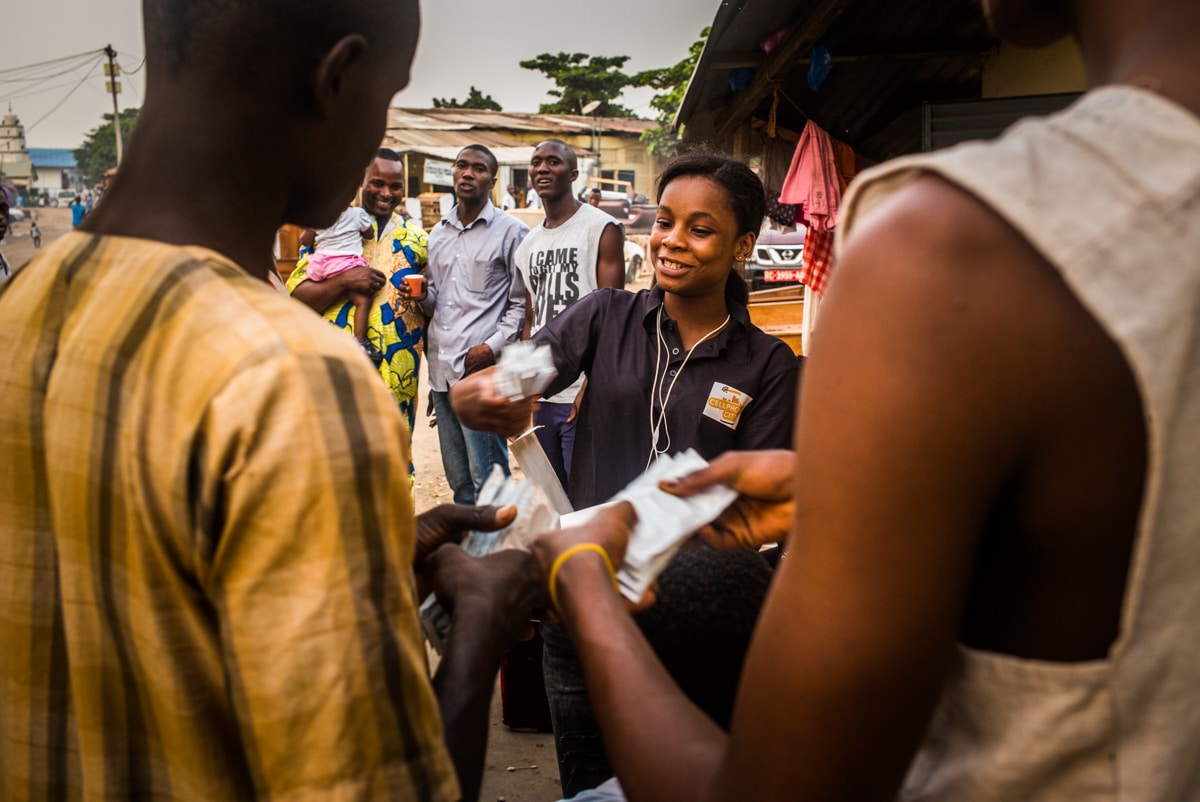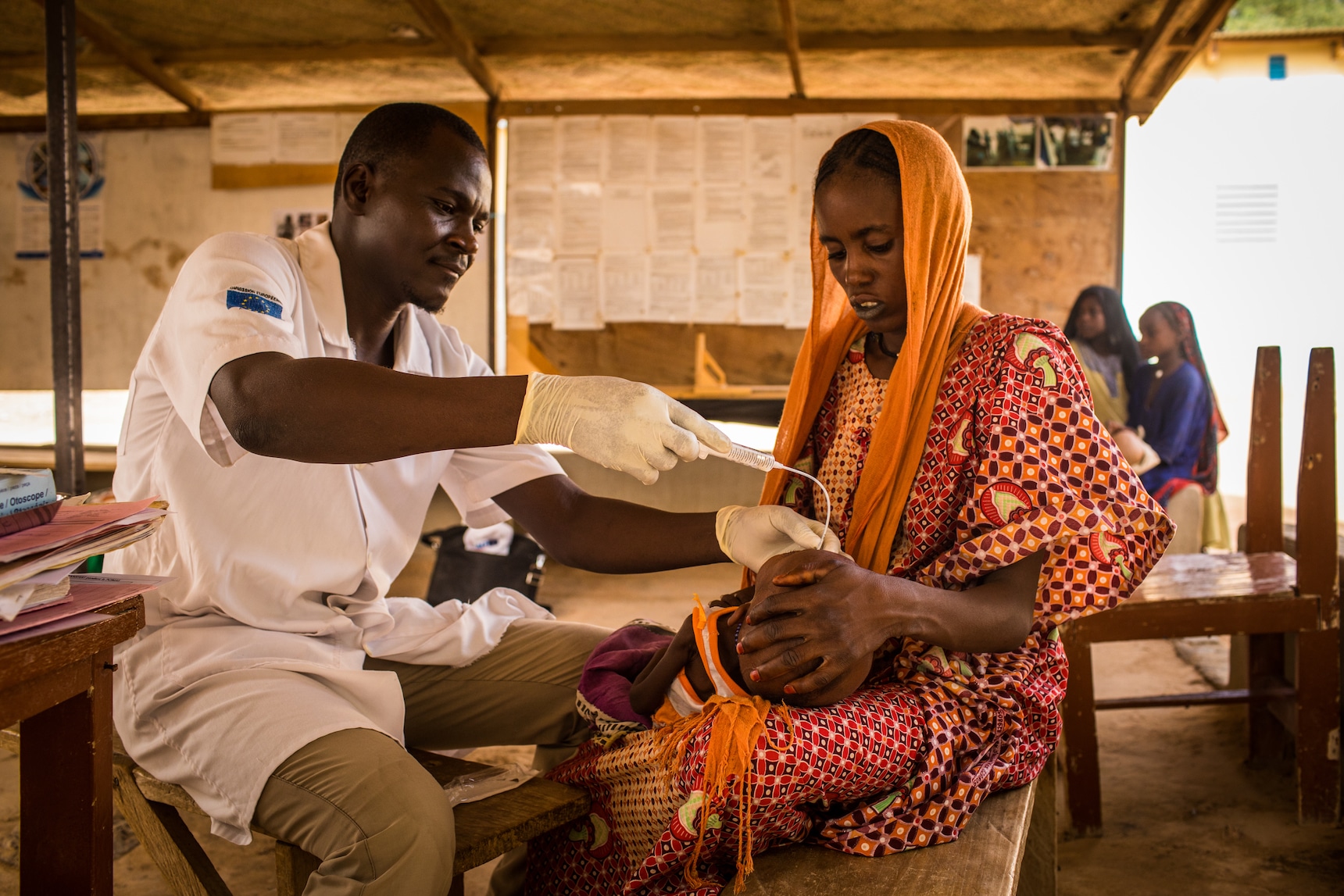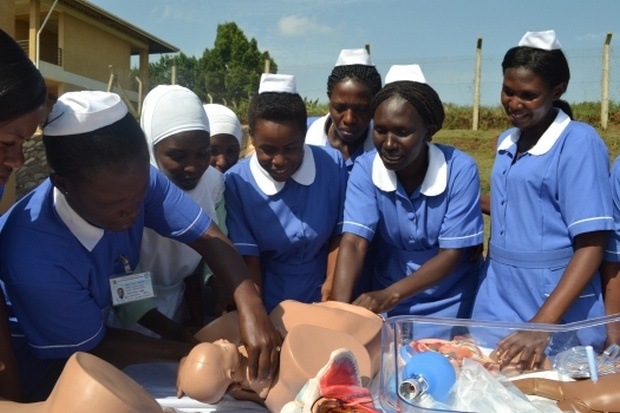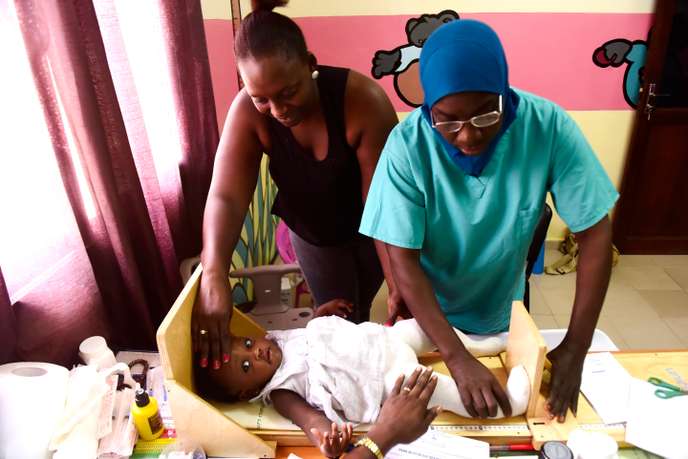ACCESS TO QUALIFIED HEALTH CARE STAFF
Putting the emphasis on human resources in the context of mother and newborn health care.
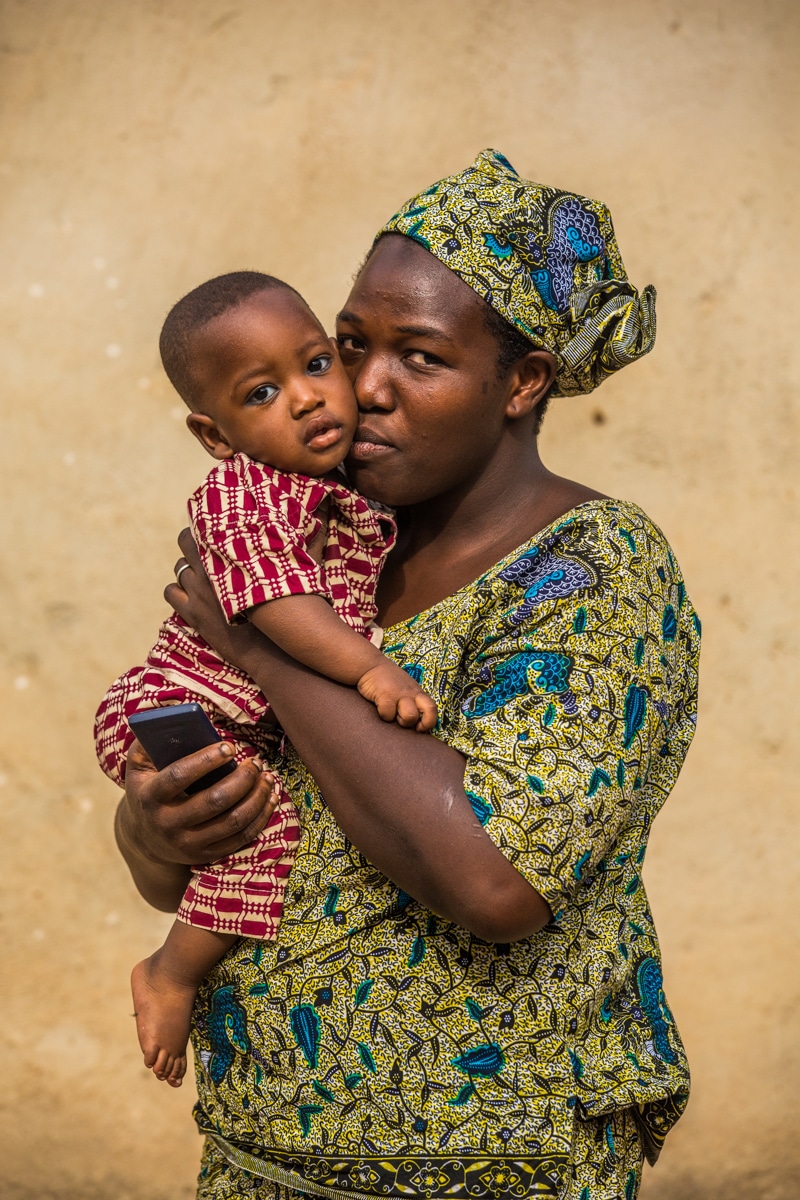
priority issues
According to estimates, for 95% of women to give birth attended by a qualified health worker a country needs a minimum of 6 health workers with the requisite obstetric skills per 1,000 births.
Currently, a midwife delivers between 100 and 200 babies per year on average, and monitors 300 to 500 pregnancies.
Improving access to skilled obstetric staff is one of the strengths of the French Muskoka Fund.
More than 30,000 health care staff (doctors, nurses, midwives and community health workers) have received support thanks to a joint agency approach.
Activities
Help with designing advocacy tools and initiatives.
Developing and disseminating policies and plans relating to health care staff.
Improved midwife training.
Setting up a best practice community based around health care providers.
Strategies
implemented
ONGOING ADVOCACY TOOLS AND INITIATIVES
Analysis of the health care labor market
-
Conducted in Benin, Burkina Faso, Côte d’Ivoire, Niger, Togo and Chad with the aim of helping countries make sensible, economically viable decisions to get the health care staff they need. Following the analysis, these countries received assistance from the French Muskoka Fund to study the financial and economic feasibility of recruiting, training and deploying the maternal, newborn and child health care staff needed. The countries revised the health sector budget to prioritize human resources. Burkina Faso increased the annual recruitment of maternal, newborn and child health care staff by 10% in 2016, to deploy staff to areas with poor provision. Niger is going to submit its investment plan to its development partners and Togo has agreed a recruitment plan for maternal, newborn and child health care staff that prioritizes rural areas.
Recommendations from the Employment Commission on health care and economic growth pertaining to the implementation of Sustainable Development Goals
-
Commission established by the UN Secretary-General with the aim of obtaining key recommendations to resolve the worldwide shortage of health and social care staff. The French Muskoka Fund recipient countries have been involved in preparing recommendations by publishing the report “Working for health and growth: Investing in the health workforce”. This report has been turned into a five-yearly action plan to fulfil the Sustainable Development Goals.
West African Economic and Monetary Union (WAEMU) regional plan
-
Decision-makers from WAEMU member countries came together to tackle the health workforce problem and adopt the Commission’s recommendations to develop the first ever sub-regional health and social workforce investment plan, helping to create additional jobs, particularly for young people and women.
POLICIES AND STRATEGIC PLANS PROMOTED AND DISSEMINATED
Midwifery and nursing practice
-
Review and development of government midwifery and nursing policies and practices using the labor market analyses and assessments carried out.
Policies and strategic and investment plans
-
Drafting of policies and plans making it easier to recruit, train, deploy and retain mother and child health care staff. It is envisaged that 40,000 jobs will be created over five years.
IMPROVED MIDWIFE TRAINING
Harmonizing the approach to quality midwife training
-
Regional inter-agency workshops held to achieve a harmonized approach and develop action plans for countries to improve the quality of training in midwifery schools.
Launch of an online training initiative (e-learning) for the region
-
The first feasibility study and follow-up/evaluation of e-learning activities. Conducted at the beginning of the Muskoka initiative with the support of AMREF, it shows the conditions needed for possible operationalization in the countries involved. Additional sources of funding include the SWEDD project and the World Bank/UNFPA, with a focus on the empowerment of women and the demographic dividend in the Sahel.
Accreditation of midwifery schools
- Assistance with producing and disseminating the global report on the state of midwifery practice published by UNFPA, designed to improve understanding of the role of maternal and newborn health care providers. It shows that 80% of the continuum of maternal and child health care can be undertaken by a midwife if she has the necessary skills.
- Advocating to raise the level of education for health professionals from high school graduate level to degree level. The French Muskoka Fund has helped to introduce an accreditation process at paramedic training schools that health care staff can access, particularly midwives.
SOME OF OUR ACCOMPLISHMENTS
A health labor market analysis supported by the French Muskoka Fund has enabled sensible and economically viable decisions to be made to get the health workers the country needs and revise the health sector investment plan to prioritize the health workforce.
Cote d’Ivoire: Following a study on the impact of health workforce expenditure, Côte d’Ivoire agreed to create 21,753 additional health jobs by 2022, in particular to meet the health service needs of mothers, children and adolescents.
Senegal: numerous actions have been undertaken with the help of the RMNCH Trust Fund in support of increasing and training health care staff.
Mali: Strategy successfully implemented in the Gao region which involves providing maternal, newborn, child and adolescent health care training to young people and women and recruiting them to keep them in rural and disadvantaged areas.

Les pays
Contact us
To contact us, complete the form below and we will get back to you as soon as possible.


